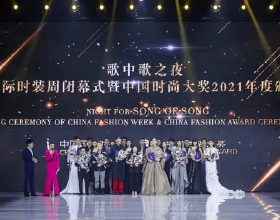美國知名問答網站Quora上一名日本網友問道:為什麼中國人主張日韓越三國文化起源於中國?美國語言研究學者吉福德回答了這個問題,他說中國有完整的考古證據和文化傳承加以證明。

美國網友吉福德•戴拉的回答,他在麻省阿默斯特大學主修語言學和漢語
Where is this?
這是哪裡?
Ask a modern person: the answer is Japan, specifically Tōdaiji (東大寺).
去問任何一個現代人,得到的答案都是日本,特別是東大寺。
Ask some from the 6th century: the answer is some temple in China.
如果你問一個來自公元六世紀的人的話,他的回答一定是:中國的寺廟。
Japan was a melting pot of indigenous, polynesian, and Chinese culture since prehistory but modern Japan has its roots from one source: Tang Dynasty (唐朝).
史前時期,日本是由粗糙的土著文明、波利尼西亞部落習俗和中國文化相互影響的大熔爐,但現代日本的根源只有一個:唐朝
The very name of JAPAN is Chinese: its meaning “origin of the sun” is from the perspective of China, and its ‘international name’ is derived from the Chinese pronunciation of 日本 from probably “Shanghaiese” aka some Jiangsu/Zhejiang dialect.
日本的名字本身就是中文:它的意思是“太陽昇起的地方”。從中國語言的角度來看的,它的“國際名稱”就是從日本的中文發音中派生出來的,據考證,“日本”這個詞可能來自“上海話”,也就是江蘇/浙江方言。
The Taika Reforms (大化の改新) was a conscious, concerted effort by the Japanese to copy and paste literally everything from Tang-era China, including but not limited to government system and administration, philosophy, religion, writing and literature, architecture, food culture, fashion, etc. Some say if you want to see the ‘real China’, go to Japan. I would modify that to “if you want to see a China that was never affected by ‘foreign’ occupations (namely Mongol, Manchu) but affected by shamanism and Polynesian cultures, go to Japan.”
大化改新(大化の改新) 這是日本人有意識地、毫無保留地複製貼上唐朝中國的一切的思想改革運動,包括但不限於政府制度和管理、哲學、宗教、寫作和文學、建築、飲食文化、時尚風俗等。有人說,如果你想看到“真正的中國”,就去日本。我會將其修改為“如果你想看到一個從未受到‘外族’佔領(即蒙古、滿族)影響,但受到薩滿教和波利尼西亞文化影響的中國,那就去日本吧。”
So the sweeping generalization that Japanese culture and language came from China is true, but with much fine-print. Note that Japanese got their first writing system from China, even though the grammatical DNA is totally different, which is why Japanese is a beast of a language to master, even for native Japanese.
因此,日本文化和語言來自中國的說法大體是正確的,但有很多細節需要釐清。需要強調的是,日本人的第一個規範的書寫系統來自中國,儘管語法天差地別,這就是為什麼日語是一種很難掌握的語言,即使對土生土長的日本人來說也是如此。
As for the origins of Japanese people: they are a mix of mainland Asian, Polynesian, and people native to the Japanese archipelago. Specifically, proto-Japanese people could be traced to two sources: Yayoi group came from a Peking Man (not *The* Peking Man but rather from Beijing area, China) and Jomon group came from Ainu, people originating from Outer Manchuria and Sakhalin region which later moved to colonize Hokkaido and Honshu.
至於日本人的起源:他們是亞洲大陸人、波利尼西亞人和在日本群島土生土長的人的混合體。具體地說,原始日本人可以追溯到兩個來源:彌生族來自北京人(不是現在所謂的北京人,而是來自中國北方地區)和繩紋族來自阿伊努人,他們來自外滿洲和薩哈林地區,後來移居北海道和本州。
There is a legend that the first Japanese people were an expedition from Qin Dynasty (秦朝) seeking immortality for the (in)famous First Emperor. The leaders of course knew they were going to fail, and never returned to China.
傳說第一批日本人是秦朝的一支遠征隊(秦朝) 為著名的第一位皇帝尋求永生,領導者徐福當然知道他們會失敗,因此再也沒有回到中國。
I think (only think) most of the Japanese people see Chinese people negatively. One of the reasons of this is because the mass media here only report negative news about China. There are a whole bunch of TV shows here introducing trips to foreign countries but they don’t include China. This sounds strange but true. I think there must be some sort of rules to exclude them or report negative info within Japan’s media companies. I would want to see such TV shows as I would like to visit China one day but none existed as far as I can recall. Instead, TV news report how rude Chinese tourists are and so and so. In a way, people here have very little info about China. You need to search by yourself if you want to know more information.
為什麼日本會有這麼多怪異的問題呢?歸根結底是因為不理解源於不瞭解。大多數日本人對中國人的看法是負面的。其中一個原因是,這裡的大眾媒體為博眼球只報道有關中國的負面新聞。這裡有一大堆介紹外國旅遊的電視節目,但不包括中國。這聽起來很奇怪,但卻是真的。我認為必須有某種規則來排除他們或把日本媒體公司內部的暗箱操作公之於眾。電視新聞報道總愛放大中國遊客的粗魯行為。在某種程度上,這裡的人們對中國的瞭解很少,如果人們想知道更多的資訊,只能靠自己搜尋。
There was a very interesting occurrence the other day. I love Chinese music played with Chinese instruments. I told one of my friends about my favorite Chinese musician (actually he is a Taiwanese to be precise but still he is a Chinese). She was instantly hooked and told me it totally changed her view on Chinese people. See? People here have only limited information and those are mostly in the negative side. But once they see the good/positive side, they will love China. There are a huge number of good things in China - food, music, nature, philosophy, martial arts and the great history. And now they are starting to lead the high tech industries. And most of all, they have the 4000 years of the past that we can dig into.
前幾天發生了一件非常有趣的事。我喜歡用中國樂器演奏的中國音樂。我告訴我的一個朋友分享了我最喜歡的中國音樂家(確切地說,他是中國臺灣人)的作品。她立刻上癮了,告訴我這完全改變了她對中國人的看法。看見這裡的人們只有有限的資訊,而這些資訊大多是負面的。但一旦他們看到了好的/積極的一面,他們就會愛上中國。中國有很多好東西——食物、音樂、自然、哲學、武術和偉大的歷史,現在他們開始領導高科技產業。最重要的是,他們有4000年的歷史,可以供我們學習和挖掘。

